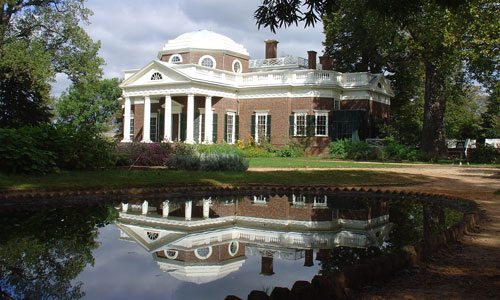The Air of Superiority
For more than 100 years, the cool breezes of air conditioning have taken hold around the world. It took us about as long to even consider the side effects.
Hey all! Inspired by a recently rekindled debate on the value of air conditioning (one that my interest was sparked in by The Atlantic’s Taylor Lorenz), I thought this piece from a few years back might inspire some cool thinking about the concept. Read on and stay chill.
Sponsored By Lemonade
You won’t hate insurance anymore after trying Lemonade.
Insurance is defined by Urban Dictionary as “A business that involves selling people promises to pay later that are never fulfilled.“ Lemonade was created to change that, using AI to simplify the entire process. Lemonade takes a flat fee, pay claims super fast, and give back what’s left to causes you care about. No more gobbledigook, no more forms or phone calls—get insured with Lemonade in 90 secs, starting at $5/month.
5%
The estimated amount of U.S. energy use that can directly be attributed to air conditioning, according to Energy.gov. Roughly two-thirds of homes in the U.S. have some form of air conditioning, but globally, we’ve tended to be the exception … until recently, that is, thanks to countries like China and India jumping on the trend within the past decade. Expect global energy use to surge thanks to people using more air conditioning than ever.

(via Velocity Air Conditioning)
Air conditioning brought buildings to new heights, but did it also make architects lazy?
In a 2012 piece honoring the 110th anniversary of Willis Carrier’s invention of air conditioning, Architect magazine honored the invention, but sounded a bit contrite about what Carrier wrought. The piece featured an interview with The Land Institute’s Stan Cox, who had recently written a book highlighting the technology’s failings. Also included was this passage:
We have become conditioned to air conditioning, to manufactured weather, and have abandoned the strategies that undeveloped and developing countries in hot climates still use. This is for good, certainly, or mostly: air conditioning makes for better economic productivity, and certainly helps preserve lives during heat waves. But in forgetting the ways that we used to cope with high temperatures, we may now be dependent on Carrier.
There’s a lot of good that came out of the ability to regulate the temperature of a room. We wouldn’t have skyscrapers, clean rooms for building advanced computer chips, shopping malls, or multiplexes without air conditioning. But on the other hand, we might’ve had a little more creativity in our home and office design had we not kept it around.
See, prior to the air conditioner reaching homes around the country, architects had to think more creatively about keeping people cool when options were more limited. This meant taking advantage of breezes, room design, and dimensional layout in a way that maximized the heat when it was necessary, and kept things cool when it wasn’t.
And it meant taking advantage of foliage around the home to build in some natural shade, as well as to build porches, which were often much cooler than the insides of homes during warm days.

(Wikimedia Commons)
A good example of architectural strategy in action is Thomas Jefferson’s Monticello, perhaps the world’s most famous building forged on passive cooling techniques. Built on a hilltop, the building took advantage of the natural breezes the location offered by having large windows and an open floor plan. And while the heat of the Virginia summer might have been sweltering, the building’s brick design helped to keep the heat out of the home until the latter part of the day, when things were starting to cool down.
The American Institute of Architects, in a 1979 article published in its quarterly magazine, cited Jefferson’s work as inspiring for modern architects, who essentially needed to be reintroduced to Jefferson’s ideas a scant 35 years after air conditioning became common in homes.
“What is most remarkable about Monticello, though, is not that Jefferson’s cooling strategies worked but the fact that they stand up so well today,” author Kevin Green wrote. “Jefferson came by his cooling intuitively, not scientifically.”
The fact that passive cooling needed to be reintroduced to architects in the first place sticks in the craw of some critics of modern air conditioning. Lloyd Alter, who has become perhaps one of the most famous critics of air conditioning as TreeHugger’s managing editor, frequently pulls out a quote from Cameron Tonkinwise of Carnegie Mellon’s School of Design that takes architects to task for this legacy of simplistic thinking.
“The window air conditioner allows architects to be lazy,” Tonkinwise is quoted as saying. “We don’t have to think about making a building work, because you can just buy a box.”
Tonkinwise, and by extension Alter, have a point on this matter, and it can largely be seen in the design of modern homes compared to those from earlier generations. In the era of the McMansion, high ceilings, porches, and ample plantlife ultimately lose out.
$20.2B
The amount that the U.S. government was reported as spending annually on air conditioning in the war zones of Iraq and Afghanistan, according to a 2011 NPR report. The report, based on some creative accounting on the part of former general Steven Anderson, included a lot of additional steps that most people who crank up the AC don’t—including the building of infrastructure to get the fuel for the air conditioner where it needs to be. The Pentagon quickly denied Anderson’s claims, and emphasized that its annual energy use was a much more modest $15 billion per year for the entire world, a cost that isn’t limited to AC.

Air conditioning and the philosophy of taking the easy way out
These days, the era of sustainable design is helping to bring back the ideas some of the earlier technology used—if you wanted to, you could take a free online course from Big Ass Fans right now that discusses the importance of air flow.
But it’s important to note that it took us a while to get back to this point. Generations, in fact. A lot of the reason why it came back up as an issue in the first place is because of the need to fix some of the problems the original solution caused—particularly, the waste of energy and the fact that running an AC all the time costs a lot of money.
Considering that, I’d like to ponder an idea—what if we attempted to solve these larger problems created by new a new form of technology before it went into wide use? What if we thought these damn problems through?
In a lot of ways, it’s arguably because something may be so groundbreaking that it represents the easy way out. There’s a term for this, cognitive laziness, and it tends to explain a whole heckuva lot.
Blogger Michael Michalko, the author of the book Thinkertoys: A Handbook of Creative-Thinking Techniques and an expert on this kind of stuff, put this in some pretty stark terms in a 2012 blog post.
“One of the many ways in which we have become cognitively lazy is to accept our initial impression of the problem that [we encounter]. Once we settle on an initial perspective we don’t seek alternative ways of looking at the problem,” he wrote in a blog post. “Like our first impressions of people, our initial perspective on problems and situations are apt to be narrow and superficial. We see no more than we expect to see based on our past experiences in life, education and work.”

In other words, if we feel that we’ve found a solution to a problem, we’re predisposed to putting that issue back on the shelf, as if it’s no longer a big thing. It takes the exposure of completely different problems for us to even consider that the solution might be imperfect.
We bend to the will of the obvious solution.
This translates in a lot of contexts. For example, if you’re signing up for a social network for the first time, and your options are to read the end user license agreement or hit the OK button. I don’t know about you, but I’m probably OK with passing up on the opportunity to read a bunch of random stuff that separates me from some wacky new filters on my phone.
So it’s hard to even get mad at architects who chose simple efficiency over complexity, or (to highlight a contemporary example) early carmakers that went with gasoline instead of something better for the environment. Because of human nature, it just makes sense that despite all the other advantages that came with air conditioning, the more challenging things that came with the invention—the fact that conservation and efficiency still have their place—didn’t initially get their due.
The question is, will we let this cognitive failing happen again with our pet robots?
“New technology is seldom embraced right away—there are always critics who deem it unnecessary. At one point, people thought dishwashers, washers and dryers were all too expensive, yet today they are standard home appliances.”
— FoldiMate, a company that makes a robot that can automatically fold laundry, defending its product in comments to Quartz—while simultaneously stumbling upon the argument that has ensured myriad automations that allow us to be slightly lazier take hold. A $800 device that folds laundry is probably not the next air conditioner, but something tells me that the next machine that fulfills this specific need is going to coast into our homes on this specific argument.
A while back, leading air conditioning critic Lloyd Alter, who I highlighted above, wrote a mea culpa on TreeHugger, making room for life with the air cranked up. Rather than arguing that air conditioning makes us lazy, he argued that living without air conditioning in the modern era was pretty much impossible in many places because of climate change.
“I have written before that air conditioners are like cars; they have changed our lives and we have built our cities around them,” he wrote in a piece that frequently challenged his previous thinking on the issue. “Our houses and modern apartments are designed in such ways that they would be uninhabitable without air conditioning, as uninhabitable as our suburbs are without cars. The climate is changing and just making it hotter and harder to live without AC.”
When CBC caught up with Alter soon after, he admitted that maybe his hard-line stance was off, especially considering the fact that building design has made it very hard to live any other way. “I realized I was being a hypocrite,” he said.
He’s right. After more than a hundred years of air-conditioned buildings, it’s going to be very hard to change course, even if we wanted to at this point.
Let’s face it: Deeply rooted innovation has a way of weakening our resolve, even in the best of us.
--
Find this one an interesting read? Share it with a pal! And thanks again to our sponsor Lemonade for giving us a push today.
:format(jpeg)/2018/01/fo4pzevw4gv7b0kvwjnw.gif)
/2018/01/fo4pzevw4gv7b0kvwjnw.gif)


/uploads/ernie_crop.jpg)